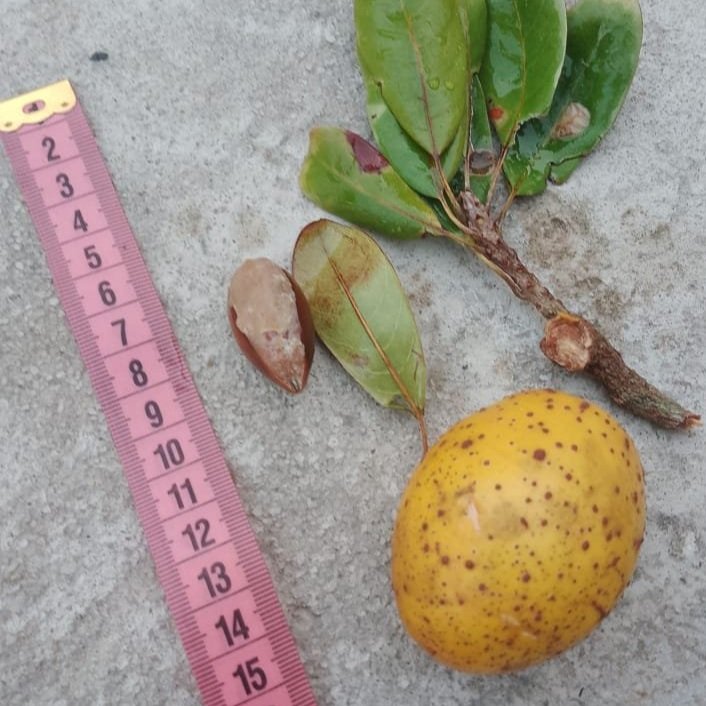 Image 1 of 3
Image 1 of 3

 Image 2 of 3
Image 2 of 3

 Image 3 of 3
Image 3 of 3




Pouteria Butyrocarpa - Butter Sapota
Pouteria butyrocarpa, commonly referred to as "Butter Sapota," is a tree species native to southeastern Brazil, specifically the regions of Bahia and Espírito Santo. It thrives in wet tropical climates and is primarily found in its native range's Atlantic Forest biome. The tree produces fruits with a pasty pulp rich in oil, offering a pleasant and distinctive flavor. When the trunk is bruised, it emits an almond-like scent, and the fruit typically contains 1-3 seeds. This species is valued for its unique fruit and rarity. Will be shipped in humid vermiculite.
Pouteria butyrocarpa, commonly referred to as "Butter Sapota," is a tree species native to southeastern Brazil, specifically the regions of Bahia and Espírito Santo. It thrives in wet tropical climates and is primarily found in its native range's Atlantic Forest biome. The tree produces fruits with a pasty pulp rich in oil, offering a pleasant and distinctive flavor. When the trunk is bruised, it emits an almond-like scent, and the fruit typically contains 1-3 seeds. This species is valued for its unique fruit and rarity. Will be shipped in humid vermiculite.
Pouteria butyrocarpa, commonly referred to as "Butter Sapota," is a tree species native to southeastern Brazil, specifically the regions of Bahia and Espírito Santo. It thrives in wet tropical climates and is primarily found in its native range's Atlantic Forest biome. The tree produces fruits with a pasty pulp rich in oil, offering a pleasant and distinctive flavor. When the trunk is bruised, it emits an almond-like scent, and the fruit typically contains 1-3 seeds. This species is valued for its unique fruit and rarity. Will be shipped in humid vermiculite.

